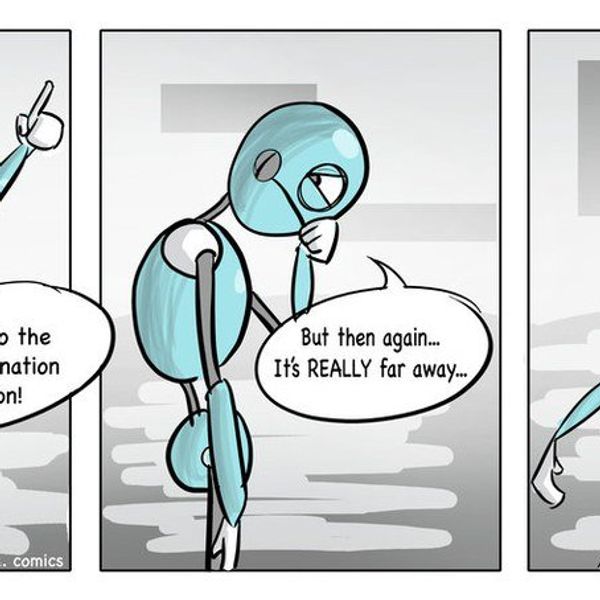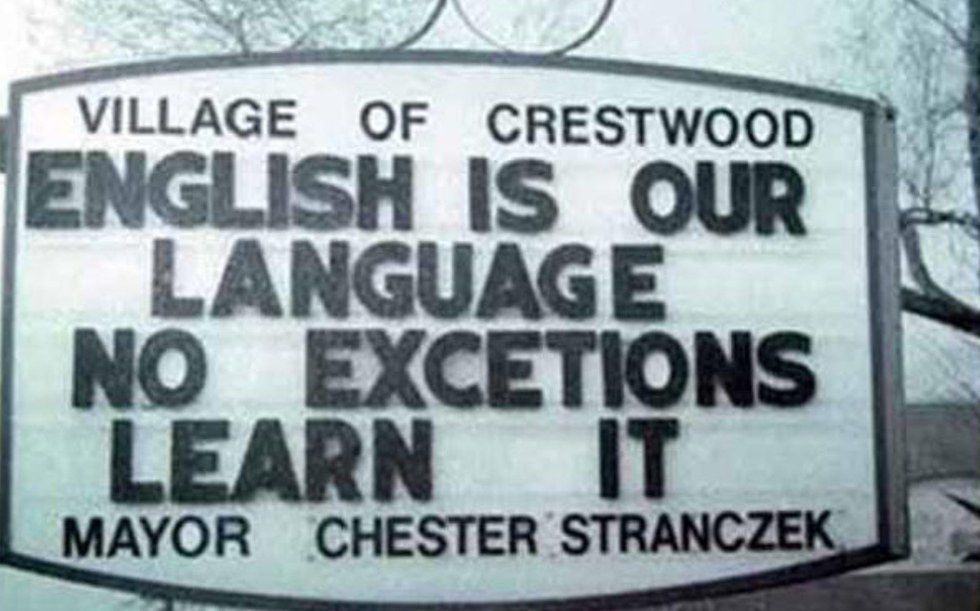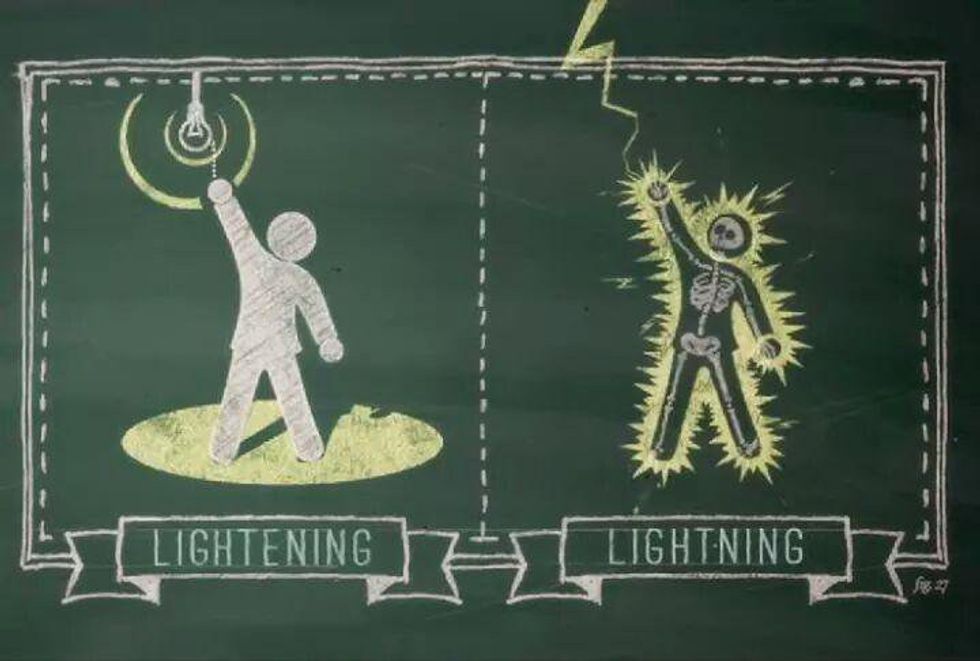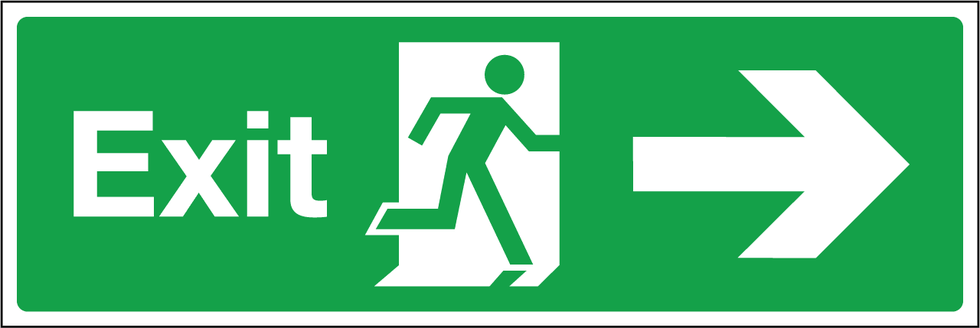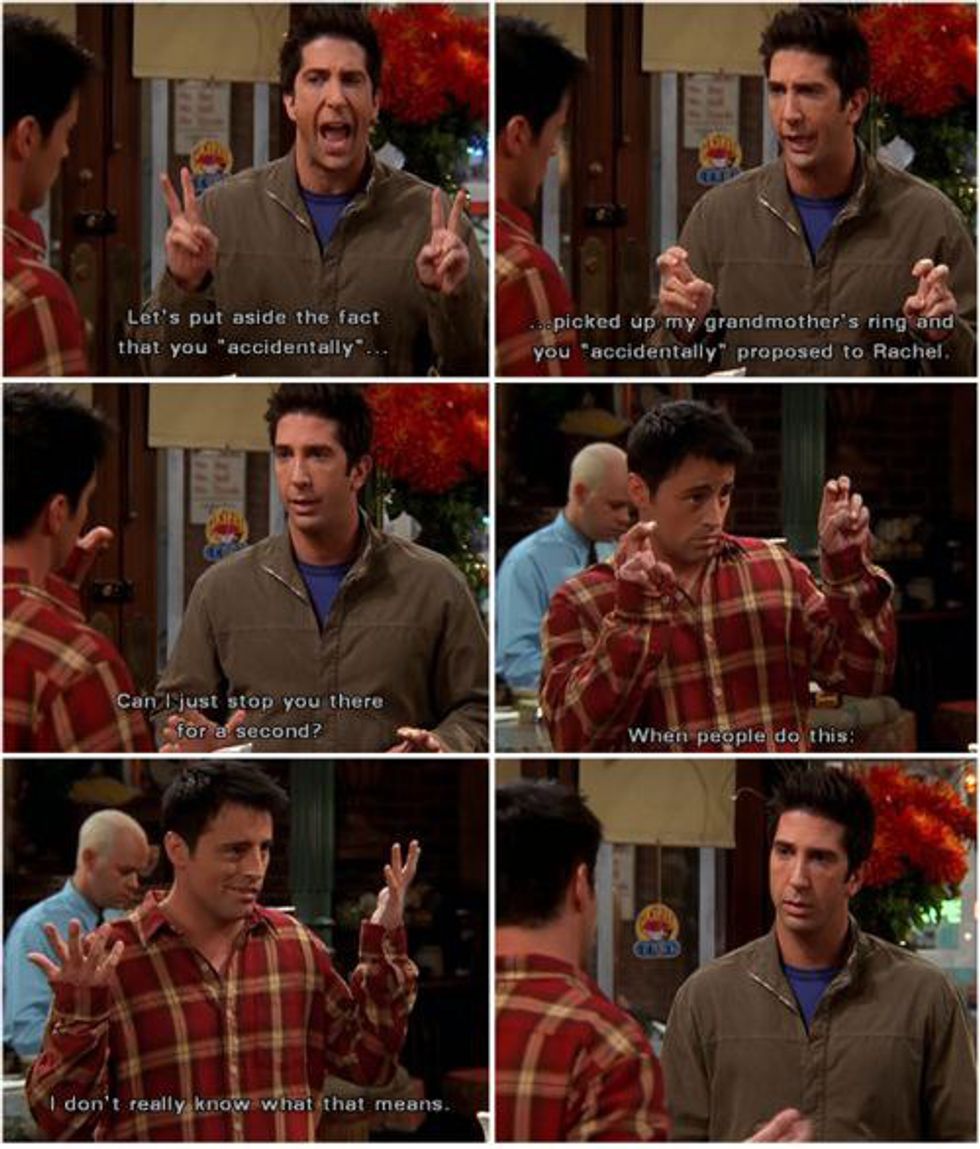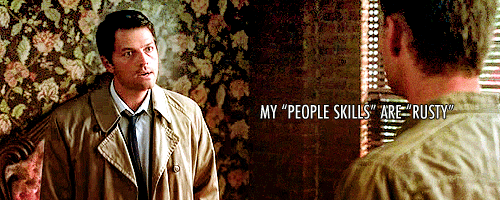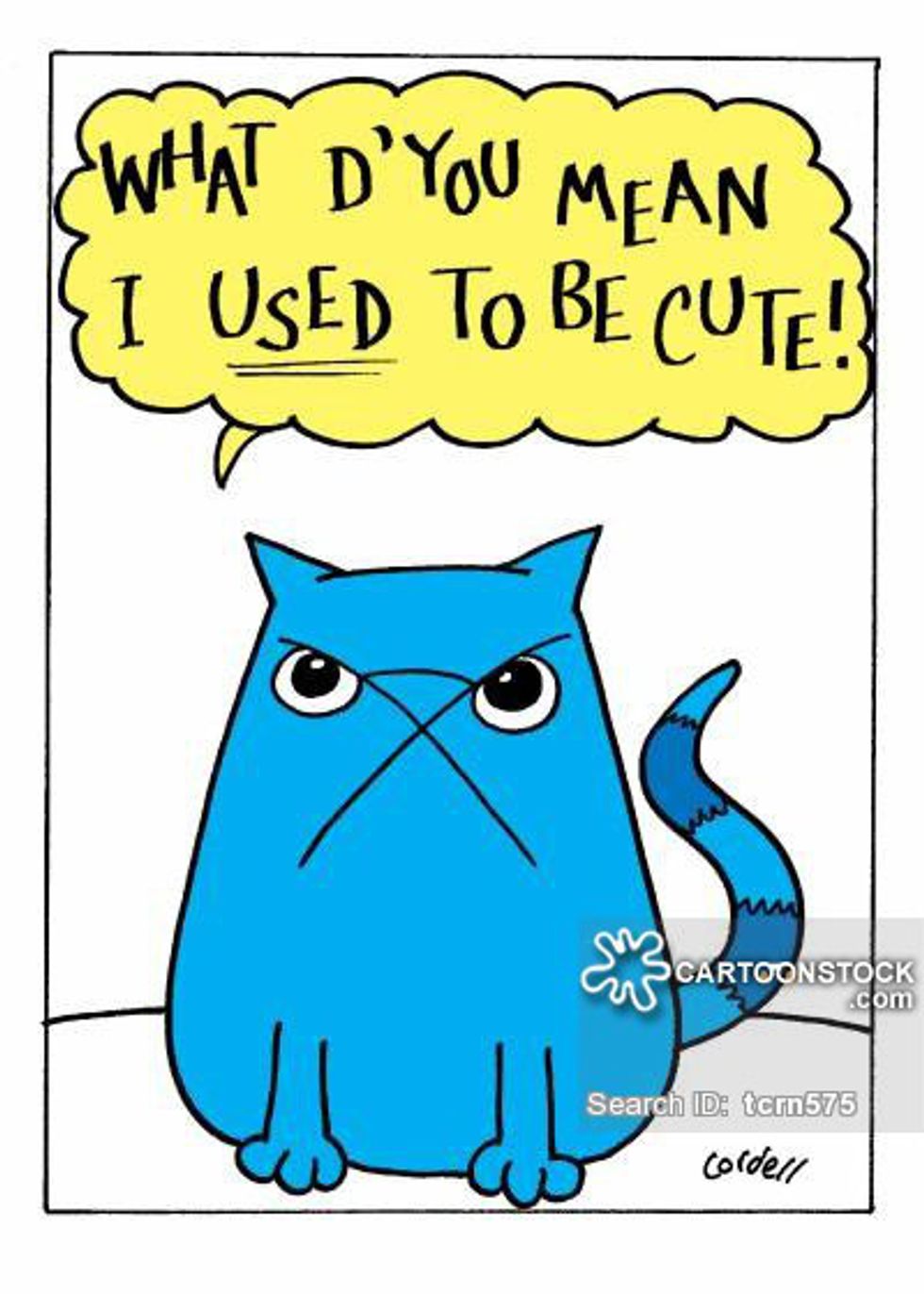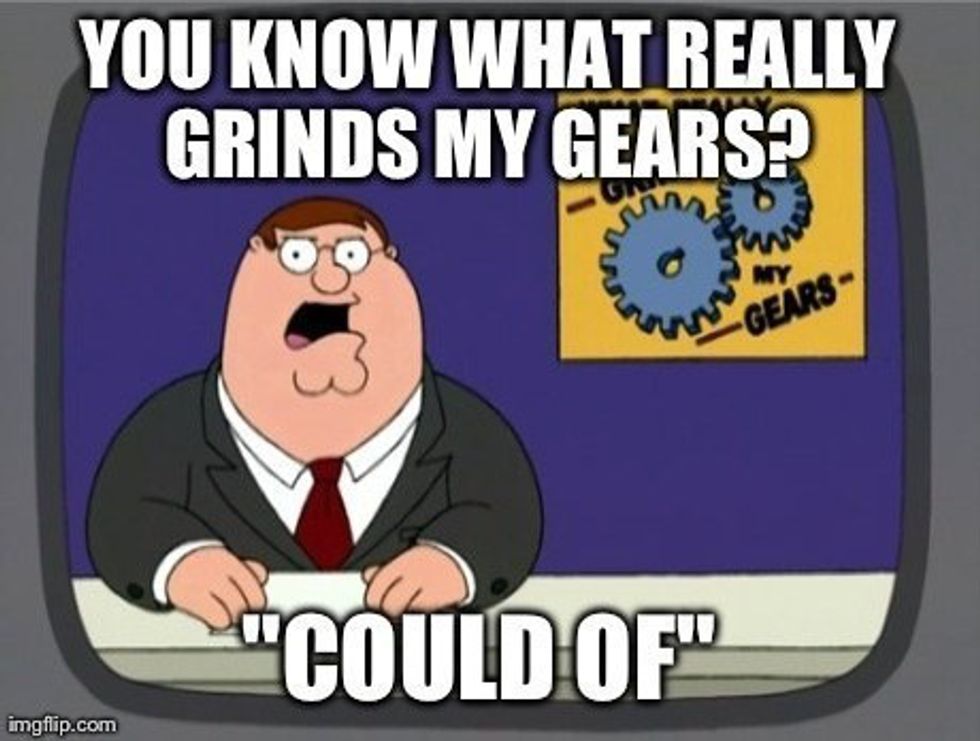The world is full of blunders: heck, there's an entire website devoted just to atrocious cakes (and it's probably one of the funniest websites in my browsing history). But as an English major and (hopefully) future educator, the ones I notice most often are the grammar errors. You might recall that I've actually written about this in the past, but there's just such an abundance of bad grammar online that I couldn't stop there.
Don't get me wrong: people make these mistakes all the time in "real life," too, but the internet just makes it so much easier to broadcast them to the rest of the world instead of restraining the mistake to, say, one classroom (the first mistake on this list is something I actually noticed for the first time on a slideshow my ninth-grade history teacher showed us).
If ever anyone needed to practice what they preached, I'd say it was this guy...
I am nothing if not informative, so I'm going to try to provide some explanation and education here instead of just saying "YOU'RE DOING IT WRONG!" So, prepare yourself for: even more grammar mistakes that need to stop!
5. "Lightening" vs. "Lightning"
This is a surprisingly accurate depiction of how I used to picture the difference between these two terms.
When my ninth grade history teacher made this mistake in a slideshow about World War II when he talked about the German military tactic of "Blitzkrieg," or lightning war.
Which he misspelled as "lightening war."
It was all I could think about for the rest of the day (yes, I was a grammar nerd even then).
He isn't the only one who has made this mistake, though, and while it isn't as common as some of the other blunders on this list--hence its position here at #5--it should still be addressed.
I've provided links to definitions of "lightening" and "lightning," here as well as above, and included a handy graphic demonstrating the difference between the terms (though it should be noted that "lightening" can also mean "to make lighter in weight" and "lightning" can also be a descriptor of speed. Because, you know, lightning strikes quickly. But generally speaking).
Simply put, "lightning war" was fast war: they weren't brightening anything or making anything less burdensome (let's not go into anything philosophical here). And if it helps, a "blitz" is something that happens quickly, which should connect "Blitzkrieg" to the word not spelled with an "e."
4. "Exited" vs. "Excited"
Let's say this now: "exited" is the past-tense form of the verb "exit." It indicates someone or something has left a location. "Excited" is a state of being. You need the "c" in there in order to be "excited" about --perhaps happily anticipating -- something.
This makes me laugh sometimes, but my favorite YouTuber who enjoys making fun of incorrect grammar posted a video pointing out people who don't know the difference between these words. It got so bad that he went from pointing out instances of people using "exited" incorrectly to people using it correctly, and eventually it devolved to him playing piano and leaving the errors onscreen. Nevertheless, it made me both laugh and want to bang my head against a wall, and it brought to the fore of my mind a mistake I've been seeing more and more often lately.
3. Using Quotation Marks for Emphasis
I get that we sometimes need to emphasize certain words over others to get our point across when we're communicating digitally, and we don't always have access to fun tools like italics or underlining. The fact that people are putting enough thought into what they're typing to do this is actually a good thing, in my opinion. But using quotation marks for emphasis conveys something entirely different than what you want to say.
This site lists rules for using quotation marks. I chose this one specifically because of rule 8a: "Quotation marks are often used with technical terms, terms used in an unusual way, or other expressions that vary from standard usage." Ross is doing that last one in the "Friends" image above when he puts air quotes around the word "accidentally," though perhaps he's mixing it with a bit (or a lot) of sarcasm. Although he is placing emphasis on the word, it isn't the kind of emphasis people usually want to employ when they use quotation marks (and you'll note that nowhere on that page does it say anything about using quotation marks for emphasis). Observe:
Sentence 1: I definitely want to go on a date with you!
Sentence 2: I "definitely" want to go on a date with you!
The emphasis placed on the second "definitely" feels more sarcastic because of the quotation marks: it seems like it "[varies] from standard usage," which changes the meaning of the sentence entirely. Here's what I do when I can't make something italic (or type in ALL CAPS), but I still want to emphasize it:
Sentence 3: I *definitely* want to go on a date with you!
This has the benefit of not committing the error of incorrectly-used quotation marks while still calling attention to the emphasized word. Some sites even automatically bold words flanked by asterisks because they realize that you're trying to emphasize those words, which I actually think is kind of cool.
So don't make this blunder! Only use quotation marks when you really need them, or others might not understand what you're trying to say.
2. "Use To"
If you want to get technical, this sentence actually needs a question mark at the end of it, but it's the "use to"/"used to" thing we're talking about here, so I'll leave it be for now.
This was almost #1, but I nudged it back to #2.
Here's why:
1) #1 annoys me more; and
2) there are technically times when "use to" isn't wrong. But the way people are using it isn't the way it's meant to be used, and "used to" is simply more common.
Most people write "use to" because when people say "used to," the "d" of "used" kind of gets mushed into the "t" of "to" and it ends up sounding like "use to." "Use to" can be correct in a sentence if you're asking a question or if the statement is a negative statement, e.g., "Did you use to be a teacher?" and "She didn't use to like chocolate, but she does now," respectively.
However, "use to" in the negative isn't common. More conventionally, we use "never used to" instead of "didn't use to," so our negative statement above changes:
Unconventional: "She didn't use to like chocolate, but she does now."
Conventional: "She never used to like chocolate, but she does now."
The way people are using it is when they're describing that they've become accustomed to something, or that they have stopped doing something that they once did repeatedly:
Example 1: "I've gotten used to the noise in the big city."
Example 2: "I used to take the bus to school, but I drive my car now."
There are more examples in the grammar sites linked here and here, as well as quizzes to help you get the hang of "used to" and "use to," but it mostly boils down to this:
NO: "My grandfather use to exercise every day before work."
YES: "My grandfather used to exercise every day before work."
NO: "I'm use to waking up early for class now."
YES: "I'm used to waking up early for class now."
EHH: "I didn't use to eat curly fries--I thought they looked weird."
MUCH BETTER: "I never used to eat curly fries--I thought they looked weird."
Phew. Okay. Moving on...
1. "Could Of"/"Should Of"/"Would Of"
Guys.
Guys.
You actually make me want to cry when you do this.
Unlike "use to," I can't think of a single instance where this is correct, so if someone can, please let me know (in a polite way) so I can write it down for future reference. For now, though, let's go with this: in general, the proper phrase here is "could have," "should have," or "would have," or the correlating contractions "could've," "should've," or "would've."
Like "use to," I understand why people do this, even if it isn't correct: they're writing it how it sounds, because, according to the Oxford Dictionary, "the pronunciation of have in unstressed contexts is the same as that of of, and the two words are confused when it comes to writing them down." This also goes for the contraction of "have," which is "'ve." Interestingly, this error was recorded as early as 1837, so if it's one you've made, you're not alone (and the people who wrote all those poems and books you had to read for your English classes might even have made it, too, except they probably had editors--or friends--who caught their mistake for them before they published it for the world to see). I know "'ve" isn't the most common contraction we use, but you still should've learned about it at some point.

